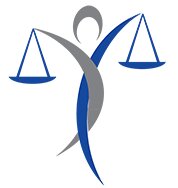Best Motorcycle Accident Lawyers in Trinidad and Tobago
Share your needs with us, get contacted by law firms.
Free. Takes 2 min.
Or refine your search by selecting a city:
List of the best lawyers in Trinidad and Tobago
About Motorcycle Accident Law in Trinidad and Tobago
Motorcycle accident law in Trinidad and Tobago is a specialized area of personal injury law. It focuses on incidents involving motorcycles, where individuals may have suffered injuries, property damages, or financial losses. Given the unique nature of motorcycles, such as their size and exposure, these vehicles often result in severe accidents. The legal framework aims to provide guidance on liability, compensation, and justice for victims or survivors involved in such accidents.
Why You May Need a Lawyer
There are several circumstances where a person involved in a motorcycle accident in Trinidad and Tobago may need legal assistance:
- If you or a loved one has suffered significant injuries and need comprehensive compensation for medical expenses, lost wages, and rehabilitation.
- When liability is disputed, and you need to establish the fault of the other party involved in the accident.
- If the insurance company is offering a settlement that is lower than what you believe is fair.
- When gathering evidence is necessary to support your claim, including eyewitness testimony and accident reconstruction.
- If there are complex legal issues, such as those involving multiple parties or uninsured drivers.
Local Laws Overview
Understanding the local laws of Trinidad and Tobago is crucial for navigating a motorcycle accident case effectively:
- Motor Vehicle and Road Traffic Act: This act governs the rules for road safety and the responsibilities of motor vehicle operators, including motorcyclists.
- Insurance Requirements: All motor vehicles, including motorcycles, are required to have a minimum level of insurance to cover damages in the event of an accident.
- Contributory Negligence: In instances where both parties may have contributed to the accident, compensation may be adjusted based on the degree of fault.
- Statute of Limitations: There is a limited time period within which a claim must be filed, generally three years from the date of the accident.
Frequently Asked Questions
What should I do immediately after a motorcycle accident?
Ensure your safety, seek medical attention, report the accident to the police, and document evidence, including photos and witness contact information.
How can I prove the other party was at fault?
Collect evidence such as photographs, obtain the police report, gather eyewitness testimonies, and, if necessary, hire an accident reconstruction expert.
What type of compensation am I entitled to?
Compensation can cover medical expenses, lost wages, property damage, pain and suffering, and any other related costs from the accident.
How long does it take to resolve a motorcycle accident claim?
The duration can vary widely based on the case's complexity, willingness of parties to negotiate, and court schedules. It can take several months to a few years.
Do I need to go to court to resolve my claim?
Many claims are settled out of court, but if negotiations fail, court proceedings may be necessary to achieve a fair outcome.
What if the other driver is uninsured?
You may need to file a compensation claim through your own insurance policy or pursue legal action directly against the uninsured party.
Can I still get compensation if I wasn't wearing a helmet?
While failure to wear a helmet may affect your compensation, it does not automatically disqualify you from receiving damages.
What is contributory negligence?
Contributory negligence refers to a situation where the injured party is found to be partly at fault for the accident, potentially reducing compensation.
Should I speak to the insurance company before hiring a lawyer?
It's often wise to consult with a lawyer before discussing details with an insurance company to ensure your rights are protected.
How are motorcycle accidents different from car accidents legally?
Motorcycle accidents often involve different dynamics in terms of liability, injury severity, and road safety laws specific to motorcycles.
Additional Resources
Here are some resources that may be beneficial for individuals seeking legal advice following a motorcycle accident:
- Legal Aid and Advisory Authority: Provides legal assistance and advice to those who qualify.
- Insurance Ombudsman: Can address disputes between policyholders and insurance companies.
- Trinidad and Tobago Police Service (TTPS): For reporting accidents and obtaining police reports.
- Trinidad and Tobago Automobile Association (TTAA): Offers driving and road safety information.
Next Steps
If you need legal assistance following a motorcycle accident in Trinidad and Tobago, consider these steps:
- Contact a reputable personal injury lawyer specializing in motorcycle accidents.
- Gather all relevant documentation, including police reports, medical records, and contact information of witnesses.
- Avoid discussing fault or settlement details with other insurers or third parties before consulting a lawyer.
- Prepare a list of questions or concerns to discuss during initial consultations with potential lawyers.
Lawzana helps you find the best lawyers and law firms in Trinidad and Tobago through a curated and pre-screened list of qualified legal professionals. Our platform offers rankings and detailed profiles of attorneys and law firms, allowing you to compare based on practice areas, including Motorcycle Accident, experience, and client feedback.
Each profile includes a description of the firm's areas of practice, client reviews, team members and partners, year of establishment, spoken languages, office locations, contact information, social media presence, and any published articles or resources. Most firms on our platform speak English and are experienced in both local and international legal matters.
Get a quote from top-rated law firms in Trinidad and Tobago — quickly, securely, and without unnecessary hassle.
Disclaimer:
The information provided on this page is for general informational purposes only and does not constitute legal advice. While we strive to ensure the accuracy and relevance of the content, legal information may change over time, and interpretations of the law can vary. You should always consult with a qualified legal professional for advice specific to your situation.
We disclaim all liability for actions taken or not taken based on the content of this page. If you believe any information is incorrect or outdated, please contact us, and we will review and update it where appropriate.
Browse motorcycle accident law firms by city in Trinidad and Tobago
Refine your search by selecting a city.














